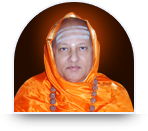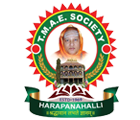
Vision
To create competent metallurgical technologists, focusing on assimilation, generation and dissemination of knowledge.
Mission
- Imparting quality education through competitive curriculum and by providing required infrastructure facilities to meet the needs of profession and society, and achieve excellence in teaching-learning.
- Attract and develop talented and committed human resource, and provide an environment conducive to innovation, creativity, team-spirit and entrepreneurial leadership.
- Facilitate effective interactions among faculty and students and foster networking with alumni, industries, institutions and other stake-holders.
- Practice and promote high standards of professional ethics, transparency and accountability.
Department Of Metallurgy
Metallurgy is a domain of materials science and engineering that studies the physical and chemical behavior of metallic elements, their intermetallic compounds, and their mixtures, which are called alloys. Metallurgy is also the technology of metals: the way in which science is applied to the production of metals, and the engineering of metal components for use in products for consumers and manufacturers.
Work & Assessment
Students works are assessed using different methods like Practical works, assignments, internal assessments, seminars & records. The final diploma award is based on both course work and semesters examinations. The students in the final year has to conduct a project work from the live problems from the industry based on the skills and knowledge and is assessed by a combination of written report and presentation.
Awarding Certificate
The Board of Technical Examinations, Directorate of Technical Education, Government of Karnataka will award the final diploma certificate for the students who will complete their Diploma Course successfully.
Course Length & Attendance
The course is of Three years (six semesters) and the students should attend the course full time.
Program Outcomes (PO's)
| PO1 | Basic and Discipline specific knowledge: Apply knowledge of basic mathematics. Science and engineering fundamentals and engineering specialization to solve the engineering problems. |
| PO2 | Problem analysis: Identify and analyze well-defined engineering problems using codified methods. |
| PO3 | Design/development of solutions: Design solutions for well-defined technical problems and assist with the design of systems components or processes to meet specified needs. |
| PO4 | Engineering Tools, Experimentation and Testing : Apply modern engineering tools and appropriate technique to conduct standard tests and measurements. |
| PO5 | Engineering practices for society, sustainability and environment: Apply appropriate technology in context of society, sustainability, environment and ethical practices. |
| PO6 | Project Management: Use engineering management principles individually, as a team member or a leader to manage projects and effectively communicate about well-defined engineering activities. |
| PO7 | Life-long learning: Ability to analyze individual needs and engage in updating in the context of technological changes. |


